The Individual without Passions
The Individual without Passions
Modern Individualism and the
Loss of the Social Bond
Elena Pulcini
Translated by Karen Whittle
LEXINGTON BOOKS
Lanham Boulder New York Toronto Plymouth, UK
Published by Lexington Books
A wholly owned subsidiary of The Rowman & Littlefield Publishing Group, Inc.
4501 Forbes Boulevard, Suite 200, Lanham, Maryland 20706
www.rowman.com
10 Thornbury Road, Plymouth PL6 7PP, United Kingdom
Copyright 2012 by Lexington Books
The Individual without Passions: Modern Individualism and the Loss of the Social Bond is a translation of Lindividuo senza passioni: Individualismo moderno e perdita del legame sociale, published by Bollati Boringhieri in Torino, Italy, 2001 (reprint 2005/2011).
All rights reserved. No part of this book may be reproduced in any form or by any electronic or mechanical means, including information storage and retrieval systems, without written permission from the publisher, except by a reviewer who may quote passages in a review.
British Library Cataloguing in Publication Information Available
Library of Congress Cataloging-in-Publication Data
Pulcini, Elena, 1950
[Individuo senza passioni. English]
The individual without passions : modern individualism and the loss of the social bond / Elena Pulcini.
p. cm.
Includes bibliographical references and index.
ISBN 978-0-7391-6657-4 (cloth : alk. paper) ISBN 978-0-7391-6658-1 (electronic)
1. Alienation (Social psychology). 2. Individualism. I. Title.
HM1131.P8513 2012
302.5'44dc23
2012018919
 The paper used in this publication meets the minimum requirements of American National Standard for Information Sciences Permanence of Paper for Printed Library Materials, ANSI/NISO Z39.48-1992.
The paper used in this publication meets the minimum requirements of American National Standard for Information Sciences Permanence of Paper for Printed Library Materials, ANSI/NISO Z39.48-1992.
Printed in the United States of America
To Dario, for giving me his time.
Acknowledgments
For their precious observations in the delicate planning phase of the book, I would like to thank Ferruccio Andolfi, Remo Bodei, Pietro Costa, Franco Crespi, and Carlo Galli. For having had the patience to read and discuss the whole manuscript point by point, I would also like to express my gratitude to Dimitri DAndrea, Alessandro Ferrara, and, in particular, Roberto Esposito for his stimulating trust.
Over these years I have been able to draw important cues for reflection from some collective discussion groups: the Seminario di Teoria Critica e Filosofia Sociale, directed by Marina Calloni, Alessandro Ferrara, and Stefano Petrucciani, an irreplaceable ten-year experience of theoretical passion and friendly reciprocity; the Collegio di Filosofia Sociale, coordinated for over two years by Giacomo Marramao, in which I experienced the gratifying sensation of sharing the same perspectives; finally the Seminario Interuniversitario di Filosofia Politica, directed for over a decade by Furio Cerutti and Danilo Zolo, whose fruitful pluralism enabled a constant comparison of positions.
I would also like to thank Alfredo Salsano for having hosted this work among Bollati Boringhieris publications.
Finally, and above all, to my beloved daughter Bharti, a special thanks for all the time taken from her.
For the English edition, the thorough work by my translator Karen Whittle and my young assistant Agostino Peruzzi has been invaluable. A special thanks also goes to Chiara Bottici, for years my precious interlocutor, for having defeated my idleness and tenaciously pushing me to publish this book in English.
Translators note:
I would like to address the use of pronouns in the text. Owing to the subject of the book, with its emphasis on the subject and individual, the singular pronoun appears very often throughout. In light of the gender debate, which pronoun to use is a delicate issue. After giving the matter due consideration, I have decided to use the male pronoun in line with the dominant usage followed until quite recently. It must be understood that, except in the parts devoted to the classical philosophers, the male pronoun can be replaced by the feminine pronoun at all times.
Karen Whittle
Introduction
For those wishing to attempt to define individualism today, Webers exhortation to take into account the complexity of this concept on the historical, ideological, or even geographical context in which it is used. At times exalted, at times condemned, with an intricate core of anthropological and political, social, and moral problems, individualism seems to be liable to a multitude of positions and interpretations, among which it is anything but easy to take a position unless we choose a privileged point of view to reread it from.
Now, there is no doubt that in the most recent debate, the renewed interest in this topic is essentially linked to a critical reflection of modernity and its pathologies. As the essence of Western civilization and epicenter of modernity, whose emancipatory project it perhaps embodies more than any other, individualism also contains the intrinsic pathological degenerations of modernity, which are increasingly visible in the erosion of the relational and communicative fabric and in the loss of the social bond: or, in a word, in the weakening of the community.
This problematic aspect emerged all the more clearly the more the concept of individualism was subjected to greater and more complex differentiation. Withdrawn from all-round identification with the paradigm of homo oeconomicus, which for a long time had allowed even very different voices to convergefrom the liberal tradition to Max Weber, and Louis Dumontthe concept underwent an epochal differentiation, the first testimony of which we could perhaps find in Simmels distinction between a universalistic individualism and an individualism of uniqueness or difference, originating in the late eighteenth century.
At present the idea of different models of individualism corresponding to the different phases of modernity seems to be particularly central in sociological reflection, from Richard Sennett to Christopher Lasch and Robert Bellah. While the first model presupposes an individual driven by an instrumental rationality, aiming to pursue his own interest and capable of self-limitation, the second reflects the image of a hedonistic and irrational individual, narcissistically wrapped up in himself and tending toward limitless self-assertion. Taking over from the prudent and far-sighted homo oeconomicus of early modernity, able to combine individual interest and common good, we have the postmodern homo psychologicus, concerned only with self-realization and with no sense of the futureseeking an authenticity which leads him to both psychologize reality, which becomes a mere mirror of his own desires, as well as to withdraw from the public and social sphere.
This differentiation without doubt manages to account for a deep transformation in the relationship between the anthropological configuration of the individual and the forms of social bond, but it risks being too simplistic. First of all, it makes too clean a break between the two models of individualism which have instead, as we will see, a common source; second, it proposes a reductive vision of both models since it seems not only to ignore the complexity of the motivations of homo oeconomicus, but also to deny that individualisms authenticitywhat is more, hastily equated with pathological narcissismhas any potential for emancipation.
If we are to introduce the topic of the passionsin my opinion this differentiation can be restored to its legitimate complexity. What is more, inclusion of the passions can also open up unusual
Next page

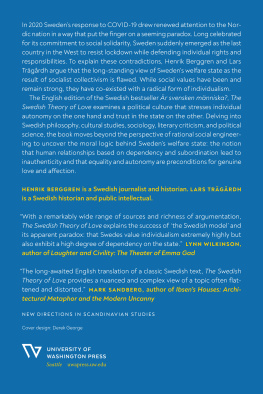
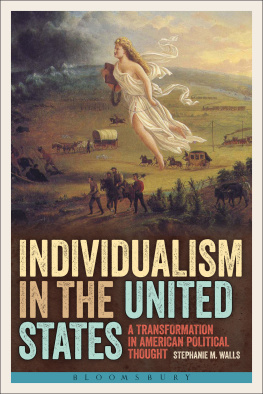

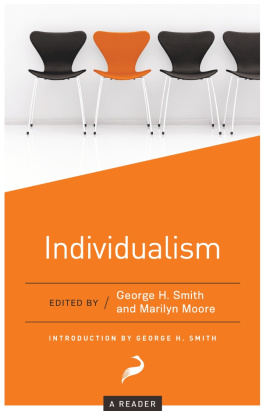
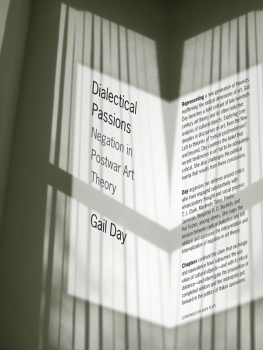

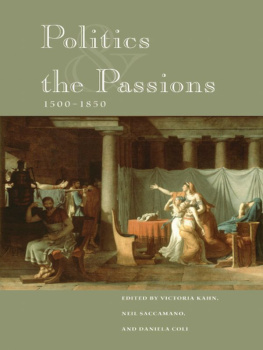

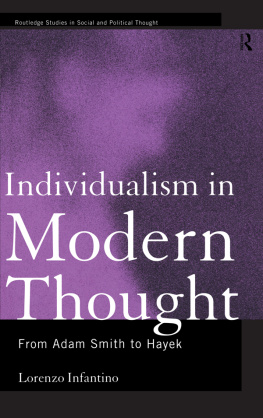
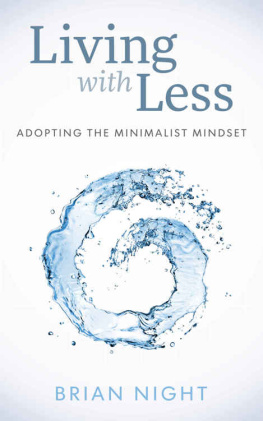
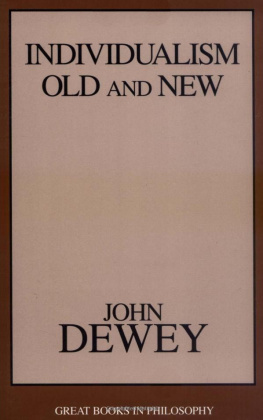
 The paper used in this publication meets the minimum requirements of American National Standard for Information Sciences Permanence of Paper for Printed Library Materials, ANSI/NISO Z39.48-1992.
The paper used in this publication meets the minimum requirements of American National Standard for Information Sciences Permanence of Paper for Printed Library Materials, ANSI/NISO Z39.48-1992.